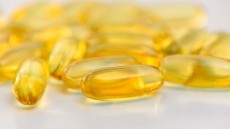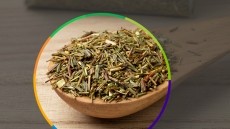Raising HDL - a new challenge for functional foods?
not enough on raising levels of HDL 'good' cholesterol, say
cardiology experts - a view that may mean functional food makers
are missing out on marketing opportunities too.
HDL (high density lipoprotein) cholesterol helps keep arteries clear of LDL (low density lipoprotein), one of the main culprits in causing heart attack as it since it allows plaque to build up and narrow the arteries. In an article published online yesterday in the New England Journal of Medicine, researchers from John Hopkins University say that current guidelines in the US do not consider raising HDL cholesterol as a primary or secondary goal in reducing the risk of heart disease - rather, they focus on lowing LDL cholesterol levels. "We have reached a turning point in the prevention of coronary heart disease from an emphasis during the last 15 years on lowering LDL cholesterol levels to an emphasis in the next decade on raising levels of HDL cholesterol," said lead author Roger Blumenthal MD, associate professor and director of the university's Ciccarone Preventive Cardiology Center. Baldeesh Rai, dietetic advisor for UK cholesterol charity Heart UK, told NutraIngredients.com that the emphasis remains largely the same in the UK, but that the emphasis is slowly changing. For the past two years, cardiologists have been gearing up to the LDL:HDL ration message, but it has not yet filtered through to many GPs and the media. Dietary measures to raise HDL cholesterol include consuming omega-3 fatty acids, swopping from saturated to monosaturated fats, eating more soluble fiber and increasing physical exercise. In addition, consuming small amounts of alcohol may help raise HDL levels is due to its polyphenol content. Rai said that there is definitely scope for functional food makers to turn there attention to HDL - and indeed, it is already happening to some extent. For example, fruit juice drinks containing higher levels of polyphenols are being launched to the market. For the moment, however, they do not make claims about HDL cholesterol, since such claims need to be backed up by very rigorous research. But Rai said that a study has just got underway to investigate how much the polyphenols in Pomegreat, a pomegranate juice drink endorsed by Heart UK, can help with HDL cholesterol. In Europe, there is certainly a need for foods that promote heart health: cardiovascular disease is responsible for 38 per cent of deaths in men and 41 per cent of deaths in women. Low HDL cholesterol is defined as less than 40 milligrams per deciliter of blood in men and 50 milligrams per deciliter in women. According to Blumenthal, every milligram per deciliter increase in HDL cholesterol lowers a person's risk of having a fatal heart attack by three percent. As well as being beneficial for people trying to prevent a build up of LDL cholesterol in the first place, HDL cholesterol can be helpful in preventing the arteries narrowing again after surgery to clear them. Earlier this year Leatherhead Food International published a report on the market for heart health products. It valued the market at $3.6 billion market in 2004, and expects that sales will grow by nearly 60 per cent over the 2004-2009, to reach nearly $5.7 billion by 2009. Cereals make up the largest slice of the market because they are naturally high in fibre, but foods designed to lower cholesterol reduction continue to dominate in terms of new launches. Susie Johnson of Leatherhead's market intelligence department told NutraIngredients.com that while there are a lot of food and drink products positioned for general cholesterol lowering, she is not aware of any that make specific mention of HDL cholesterol. There are five ingredients that are added to products aimed at lowering cholesterol: phytosterols, soya, oatbran, psyllium (a husk used almost exclusively in Japan and Australia) and wholegrains. External links to companies or organisations mentioned in thisstory: Leatherhead Food International Heart UK











